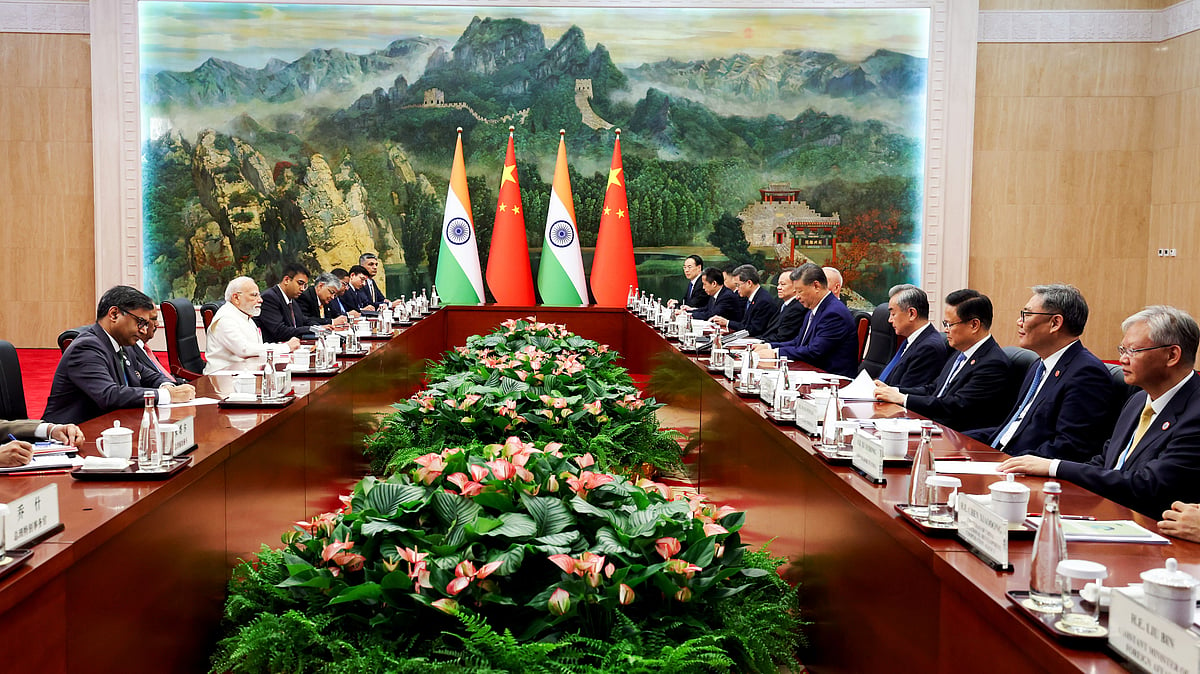The foreign ministers of the G7 nations, a group of the most powerful global economies barring India and China, met in Japan. The outcome was closely watched as their meeting leads to the G7 summit on May 20-21. Prime Minister Narendra Modi is expected to attend, especially because India next hosts the G20 summit.
The contemporary geopolitical scenario is not propitious for optimistic results at these summits. A fresh Ukrainian offensive is expected, perhaps as early as May beginning, when the post-snowmelt ground becomes less muddy. Russia’s winter campaign has ended without much change in the frontlines. The big question confronting the Western supporters of Ukraine is whether Ukraine can break through Russia’s strong defences. Peace talks are unlikely till both antagonists realise that the benefit from fighting is outweighed by the costs.
The G7 agenda is also dominated by the China question, with warnings normally issued about retaliation if China uses force to annex Taiwan. China in turn has been working to break the Western solidarity by wooing individual leaders. French President Emmanuel Macron’s statements during his Chinese visit, about Europe requiring an autonomous foreign policy and avoiding embroilment in the US-led wars, was music to Chinese ears. Similarly Brazilian President Luiz Inacio Lula da Silva, also during his China visit, projected his nation as an independent actor furthering its national interests. Although he has condemned the Russian breach of Ukrainian sovereignty he has been chary to supply ammunition to Ukraine. Both leaders strengthened the Chinese hand in countering the US and created fissures in the Western alliance.
China seems to have concluded that dialogue with the Biden administration is at present pointless. This confrontational phase in Sino-US relations commenced last August with the visit of US Speaker Nancy Pelosi to Taiwan. It has been exacerbated by an unofficial visit of the Taiwanese president to the US. A spokesman of the Chinese foreign ministry alleged that “the responsibility for the current difficulties in China-US relations does not lie with China”. Reflecting this ire has been Beijing’s unwillingness to hold military dialogue and host US Defence Secretary Lloyd J. Austen.
The new “buzzword” in dealing with China is “de-risking” instead of de-linking. Especially in Europe, there is recognition that it is impossible to simply shut out China as its economy is too large and its dominance of global trade and supply chains too advanced to be isolated. Thus a bouquet of steps are being adopted by different nations in varying measures. These include screening of investment into and out of China, increasing subsidies to domestic industry to onshore production, diminishing reliance on supply-chains. Harsher steps have been taken by the US like their Chips Act or Inflation Reduction Act to force US industry to go indigenous and block high-end technology flow to China.
This complicates the Indian task as the G20 chair. In any case, India has an unsettled boundary with China which the latter heats up occasionally to try curtailing India’s strategic choices. Over the past decades China has also strengthened its hold over India’s neighbours. India needs to manage this while it balances China’s larger geopolitical aspirations and rise as a global power. While Nepal and Bhutan are important buffers between India and China, which need to be kept at least neutral, Sri Lanka and Maldives are important pawns in the maritime domain. However, the most important Chinese ally is the nuclear-weapon-possessing Pakistan, which is additionally the fount of Islamic radicalism and terrorism.
In the Modi government’s second term India chose to freeze relations with Pakistan. The abolition of Article 370 of the Indian Constitution, and downgrading and partitioning of Jammu and Kashmir, provided a new template for Pakistan-handling. Covid, extreme flooding and economic mismanagement have led Pakistan to financial ruin and economic meltdown. Pakistan’s old trick of playing victim and serving sundry interests of major outside powers is no longer working well. Radical Islam, Pakistan’s instrument to hassle India, is now devouring the Pakistani state.
The big question is whether ignoring Pakistan and letting it linger as a dysfunctional state is in India’s interests. On May 4-5 Pakistan’s foreign minister Bilawal Bhutto is to attend a meeting of the Shanghai Cooperation Organisation foreign ministers in Goa. This would be the first ministerial visit since Prime Minister Nawaz Sharif attended PM Modi’s swearing-in ceremony in 2014. Despite Bhutto’s intemperate remarks against the Indian leadership at the UN General Assembly high level meeting last September, it provides a narrow window for commencing a thaw. The caveat is that while Pakistani national elections are due no later than mid-October, in India they follow six months later. In neither nation would the incumbent government wish to risk engagement, afraid of political backlash if terrorists decide to play spoilers. On the other hand it is imperative to wean Pakistan away from China to reduce Sino-Pak convergence. For successful handling of China the condition precedent is better Indo-Pak relations.
KC Singh is former secretary, Ministry of External Affairs










